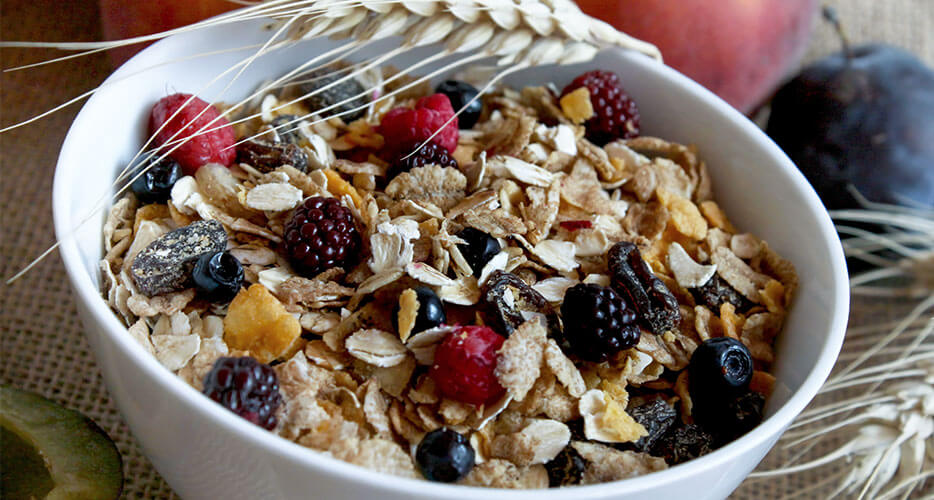
Now universally recognized by all scientific communities as the only food able to fully satisfy the needs of the infant, mother's milk is fundamental for the supply of nutrients and functional factors such as antibodies and hormones: we explore the topic with our nutritionist, Dr. Andrea Del Seppia.
The composition of breast milk is excellent for providing the baby with the right nutrients in quantity and proportions. Thanks to immunoglobulins, lactoferrin, lysozyme and cells of the immune system (macrophages, lymphocytes and neutrophils), it has an "immune" function towards numerous pathogens (viruses and bacteria) and reduces the incidence of food allergies in adulthood. It is a food that is always available, fresh, at the right temperature (body), also valuable for the effectiveness it has on the mother-child bond and on the psychological well-being that arises in both from the practice of breastfeeding. Various scientific studies show that, in addition to the child's good health and proper development, breastfeeding reduces the risk of breast cancer, ovarian cancer, the risk of type 2 diabetes and postpartum depression for the woman.
But what are the characteristics of breast milk? Let's see them together ...
First of all, the composition varies from person to person and from the beginning to the end of the breastfeeding period, adapting to the growth needs of the newborn. For example, the colostrum produced from the first to the fifth day of lactation is richer in proteins and immunoglobulins than transitional milk, secreted from the fifth day of lactation and from mature milk, due to the baby's need to develop tissues and immunity. However, the average composition varies from 0.6 to 1.4% of proteins, from 3 to 8% of fats, from 6.5 to 8% of carbohydrates and contains about 0.2% of salts; the rest is water. On the other hand, artificial breastfeeding can lead to a higher incidence of childhood obesity (type I and II diabetes), less resistance to pathologies and less development. In mothers, non-breastfeeding is associated with an increased incidence of premenopausal breast cancer, ovarian cancer, gestational weight gain, type II diabetes, myocardial infarction and metabolic syndrome.
Let's now pass to the nutritional requirements: according to the LARN (Nutrient and Energy Reference Intake Levels) the energy requirement of the nursing nurse increases with the production of milk ranging from 750 ml / dia to 810 ml / dia, for which will require an increase in caloric intake from 450 to 550 kcal / dia. However, the quantity can vary from woman to woman based on numerous factors such as, for example, age and weight reached at the end of pregnancy by the mother and size of the child.

Speaking of the mother's feeding time during breastfeeding, it is essential to keep in mind that the quality of the food introduced is reflected in the quality of the milk that will be taken by the infant. Therefore, the same recommendations for pregnancy apply. In general, it is recommended to follow a varied and balanced diet consisting of fruit, vegetables and cereals, preferably whole wheat, important sources of dietary fiber. Compared to pregnancy, the caloric intake must be increased: we therefore recommend 4-5 weekly portions of legumes, sources of vegetable protein and dietary fiber, to be alternated with meat, fish, eggs and cheese.
Fish is important for a correct intake of DHA, which is important for the development of brain and retinal structures.
At least 2 portions of fish are recommended, up to 3-4 servings per week, better if small sized blue fish (sardines, anchovies, mackerel) rather than large fish such as tuna and swordfish, accumulators of contaminants (EFSA 2015) . With regard to fats it is preferable to use extra virgin olive oil and essential fatty acids which are mainly found in oil seeds (for example flax, walnut, almond and soy) and blue fish.

Among the micronutrients, particular attention must be paid to calcium, present above all in milk and derivatives; to the iron we find, for example, in legumes; to vitamin B12 that we can find in eggs and fish such as salmon and sardines; folic acid, of which broad-leaf vegetables and vitamin D are rich.
All dried fruit, rich in mono and polyunsaturated fatty acids, could be an excellent snack at least once a day.
It is also important to maintain a high water intake of which an increase of about 700 ml per day is recommended, compared to what is recommended for women who do not breastfeed (2000 ml).
At this point we just have to list the foods to avoid: such as those that can make a bad taste of milk, making it unpleasant to the baby or cause food poisoning. In the first case, onion, parsley, artichokes, broccoli, cabbage and asparagus are contraindicated. In the second case, we advise against the consumption of crustaceans, molluscs, game and raw eggs. Also, if the infant is suffering from gaseous colic, avoid all dairy products, legumes with peel and dried fruit. Always remember that being followed by a specialist in nutrition is the best solution to ensure the right amount of nutrients and in the right amounts for each single mother.
Read the full article on Misura® website
Read the article on Misura® official page
Link to Dr. Andrea Del Seppia page on the official Misura® website
Misura® is a registered trademark of Colussi S.p.A. The material reported in this article is the property of Colussi, who authorized its publication.